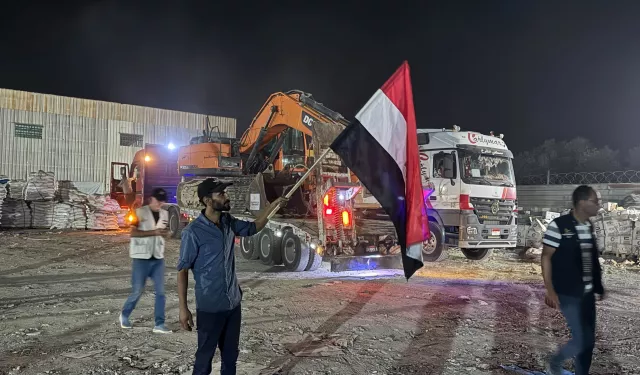Egypt moved a second batch of heavy machinery into Gaza Sunday night through the Karm Abu Salem crossing, after the Israeli occupation permitted the entry of Egyptian technical teams to help with reconstruction work and search for the bodies of Israeli captives buried in the rubble.
“We’re bringing in 14 heavy machines with this second batch. They’ll start working Monday morning to clear debris and help recover bodies,” Mohamed Mansour, spokesperson for Egypt’s Reconstruction Committee, told Al Manassa.
The equipment will spread out across some of the hardest-hit areas to reopen roads, clear wreckage, and make it easier for Palestinians to access basic services. Mansour said Egypt expects to send additional machinery over the next few days as part of its humanitarian response to the massive destruction across the Strip.
Four machines entered Gaza through Karm Abu Salem on Saturday and started operating in the Hamad Towers area northwest of Khan Younis, where crews are removing debris and searching for the remains of Israeli captives.The recovery and transfer of all remains falls under the first phase of a ceasefire agreement between Israel and Hamas. Israel says this must be completed before any progress toward a second phase can begin.
That second phase, which Trump announced earlier this month, covers negotiations over the future administration of Gaza and the disarmament of the resistance.
To date, Israel has received 20 living captives, plus 15 bodies out of the 28 captives killed during Israeli strikes on the Strip. Hamas says it needs more time and equipment to locate the rest.
Israeli newspaper Yedioth Ahronoth reported Sunday evening that occupation forces actually pulled back from one search area after pressure from international mediators, apparently to avoid a clash with Hamas.
Prime Minister Benjamin Netanyahu said on Sunday that Israel "will decide alone" when and where it conducts strikes and which countries can join a planned international security force due to deploy in Gaza under the agreement.
The security force is expected to comprise mostly Arab and Muslim personnel. Israel has ruled out Turkish participation, describing Turkey as a "regional rival."
